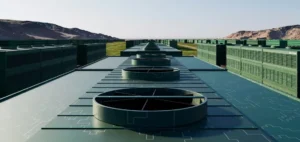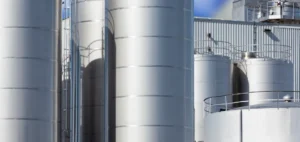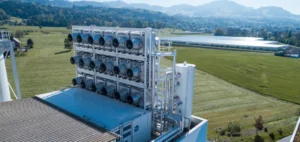The French group Technip Energies has announced that it has secured a strategic contract from NZT Power Limited to develop a gas-fired power plant featuring a carbon capture and storage (CCS) system. This project will be located in the northeast of England, a crucial region for the UK’s energy transition.
The plant, designed to generate up to 742 megawatts of flexible, low-carbon electricity, will supply the equivalent of over one million British households. Using an innovative capture system, up to 2 million tons of carbon dioxide (CO2) will be extracted annually, transported, and permanently stored. This breakthrough relies on Shell’s “Cansolv” technology, engineered to optimize greenhouse gas reduction in large-scale energy infrastructure.
A key contract for Technip Energies
Valued at more than one billion euros, this project strengthens Technip Energies’ leadership in carbon capture technologies. Together with GE Vernova and Balfour Beatty, the group will oversee the CCS technology integration and plant construction.
Arnaud Pieton, CEO of Technip Energies, stated: “This contract demonstrates our ability to deliver solutions that address global climate challenges. Carbon capture is essential to achieving the goals set by the Paris Agreement and decarbonizing the energy sector at scale.”
Significant support from the UK government
This project is part of a £21.7 billion investment by the UK government in carbon capture and storage technologies for industrial and energy emissions. This initiative is aimed at accelerating the country’s path to carbon neutrality by 2050.
Carbon capture (CCS) involves capturing CO2 directly at the source, such as factories or power plants, to prevent its release into the atmosphere. This process is distinct from direct air capture (DAC), which targets emissions already present in the atmosphere. By capturing emissions upstream, CCS offers an immediate and effective response to climate challenges.
Towards a global reference in carbon capture
The gas-fired plant by NZT Power Limited could become a global model for integrating carbon capture and storage technologies. It will address both the UK’s energy needs and global environmental objectives. By bringing together key industry players and advanced technologies, this project paves the way for energy solutions that are both reliable and environmentally friendly.






















